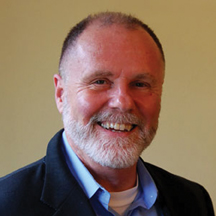 By Tom Moon, MFT–
By Tom Moon, MFT–
Like many readers of this column, I’ve been struggling with the question of how best to live my life in the time of the monstrous Trump regime. I want to resist in every nonviolent way that I can, but I also want my life to be an act of resistance, an expression of the human values that this administration violates. Lately it has occurred to me that a better understanding of the nature of happiness may be helpful. Here’s what I mean:
As I wrote in a previous column (How Should We Pursue Happiness? 7/25/18), while the pursuit of happiness is supposed to be one of our foundational values, we Americans are singularly clueless as to how to go about it. In the U.S., if you decide to become happier, you naturally pursue bliss for yourself. You decide to take a vacation, go back to school, diet and so on. That’s because, in our country, we think of happiness as something to pursue by and for oneself.
But in other places in the world, especially in Asia, unhappiness is understood as a symptom of alienation from the collective. In those other countries, when people want to be happier they work to improve their connections with others, and they try to make things better for the people around them. The research consistently shows that our American way doesn’t work, but that the more “collective” approach does.
Our cluelessness shows up in other ways. We say, for instance, that money doesn’t buy happiness, but most of us actually believe we’d be a lot happier if we were richer. Yet, the fact is that our gross domestic product per capita has tripled since the end of World War II, but our subjective sense of well-being has hardly changed at all. In that same period, there has even been a ten-fold increase in the incidence of depression, and measurable increases in our levels of anxiety and distrust.
The research, however, does suggest that there is one other way that money can make us happier. Several published studies showed that money contributed to people’s well-being when they gave some of it away. When they donated it, or gave some of it as gifts to loved ones, their level of happiness increased measurably.
The conclusion seems to be that the materialistic treadmill of greed, acquisitiveness and hoarding can’t make you happier—but generosity can. All of this is consistent with the findings of the relatively new school of Positive Psychology, which attempts, among other things, to discover the components of human happiness. Some of the research findings are that we become happier when we pursue deeper connections with others, when we practice acts of kindness, when we’re generous and when we cultivate gratitude.
I have come to see Trump as the outcome of a very unhealthy trend in American life. Our connections with family, community and country have been fraying. Too many of us have become preoccupied with our individual pursuits and have lost any sense of commitment to the common good. My idea, then, is that the most fundamental act of resistance any of us can do is to commit our lives to healing our alienation from one another through cultivating and practicing altruism, certainly in our politics, but also in our personal lives.
In keeping with the idea that the personal is the political, one way to begin this process might be to follow the recommendation of Sonja Lyubomirsky, a Positive Psychologist at Stanford. She tested whether asking people to commit five random acts of kindness per week would reliably increase their level of positive emotion. She found that it does, and that it is most effective if all five acts are carried out on the same day.
The idea is that you can gradually strengthen your “altruism muscles” through regular practice of this exercise. Be a listening ear to a friend. Help a friend or neighbor who is ill by doing the laundry, or walking the dog. Give a large tip for a small bill. Do something for someone that requires time and effort on your part. Volunteer in your community. Your own sense of well-being will surely improve, and who knows? You may just make a contribution to healing the soul-sickness that currently infects our country.
Tom Moon is a psychotherapist in San Francisco. For more information, please visit his website http://tommoon.net/
Recent Comments